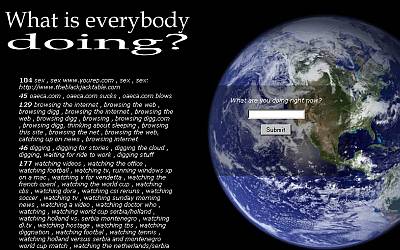Why do people hardly believe 'wrong ideas'? Scientific studies of scientific research are shown

by ThePixelman
People showed research results that they feel the certainty that "you are correct" and "this is correct" not "how much evidence is accumulated" but "performance of latest results". Even if it is wrong with the first 19 questions, if you answer the last 5 questions correctly, people seem to think "I understand this thing correctly".
Certainty Is Primarily Determined by Past Performance During Concept Learning | Open Mind | MIT Press Journals
https://www.mitpressjournals.org/doi/abs/10.1162/opmi_a_00017
Why we stick to false beliefs: Feedback trumps hard evidence | Berkeley News
http://news.berkeley.edu/2018/09/04/certaintystudy/
Why we stick to false beliefs: Feedback trumps hard evidence: New study finds that feedback rather than hard evidence makes us more confident that we're right - ScienceDaily
https://www.sciencedaily.com/releases/2018/09/180904150353.htm
A study done by doctoral student at the University of California, Berkeley, Louis Marti et al. Reported that when learning something new and when distinguishing between good and evil, the "latest feedback" rather than the reliability of the evidence " It was shown that it is easy to get a feeling that "It is a fact."
What is the research team that has the most influence on the sense of certainty that people have? Investigate that. Experiments at Ronchester University showcase graphics of various colors and shapes on a computer screen for 500 subjects collected using " Amazon Mechanical Turk " which is one of the web services provided by Amazon It was that.
This is the content shown on the display. A green triangle is shown at the top of the screen and "Is this Daxxy?" (This is Daxxy?) "Are you sure that you know what Daxxy means? Do you really know about what Daxxy is? "To answer the question" Yes "or" No ", it is supposed to answer.
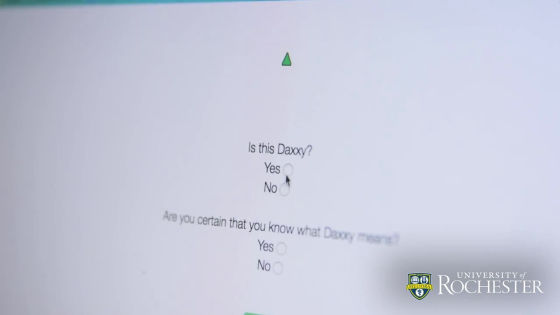
As the color and size of the figure change, the question is repeated many times. For example, if you answer "Yes" to the first question when you see a large red triangle and "No" to the second question ... ...
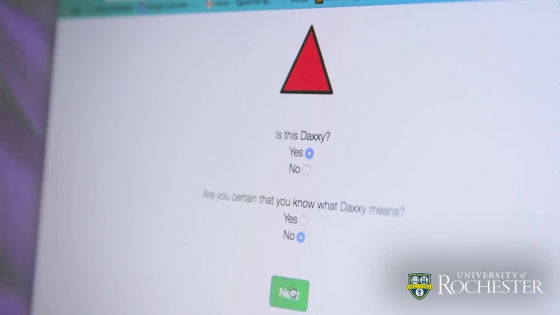
"Incorrect, this is not Daxxy" was displayed.
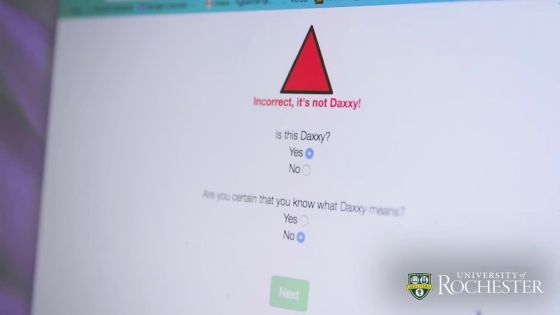
The green square also does not seem to be Daxxy.
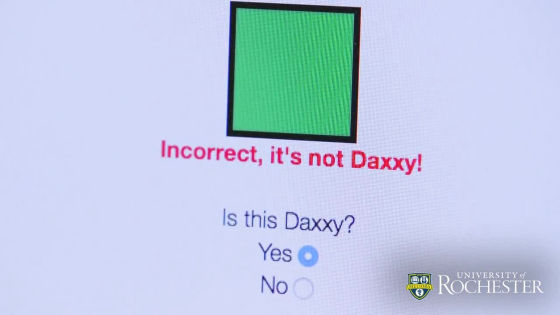
Daxxy is a word made by a researcher, so it does not exist in reality. Subjects repeatedly asked questions, and based on feedback from the computer that "This is not Daxxy" and "This is Daxxy", Daxxy will guess something about something.
As a result of the experiment, it is not about concluding from the result of "all questions" that the subject answered about "what is Daxxy", but to draw a conclusion from the results of the last 4 to 5 questions I understood.
"The interesting thing we discovered is that the subjects are confident in the first five ques- tions if they are wrong, but they are confident." "They did not pay attention, I am learning about Daxxy, but I have not used most of the information I learned to judge "certainty", Mr. Marti said.
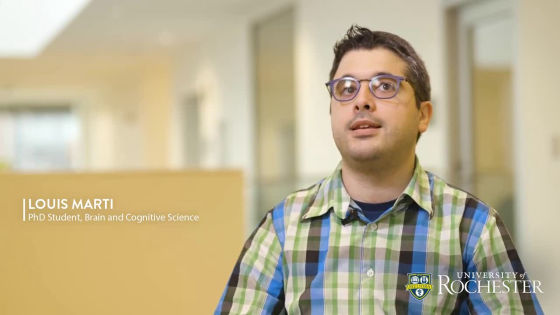
Such human perception affects the view of human beings even in the real world, even in the virtual world such as SNS. "If you predict that you used a funny theory two to three times, you will be caught in that theory and you will stop gathering information," says Celeste Kidd, who was involved in the study.
Marti's research content can also be confirmed in the following movie.
Why do we stick to false beliefs? - YouTube
Related Posts:







